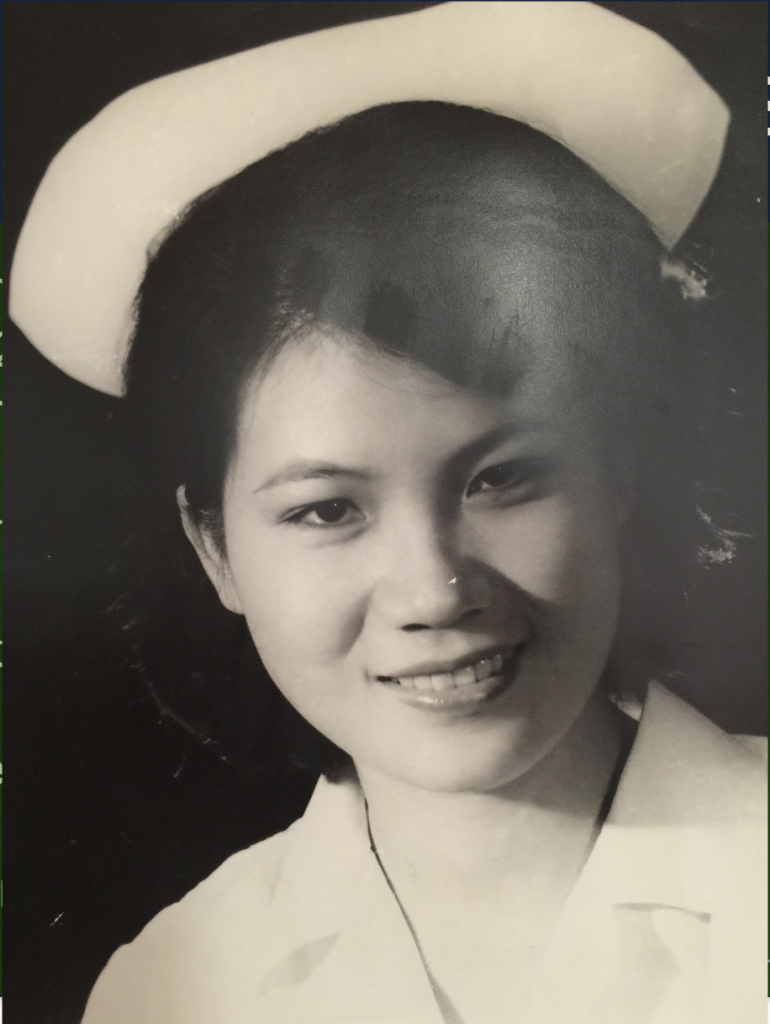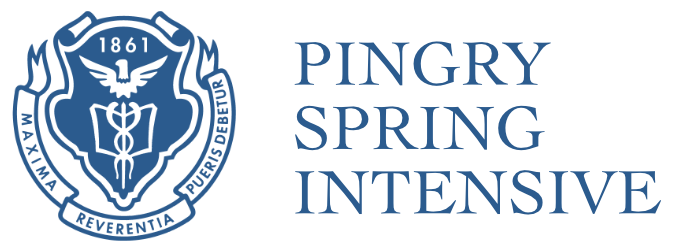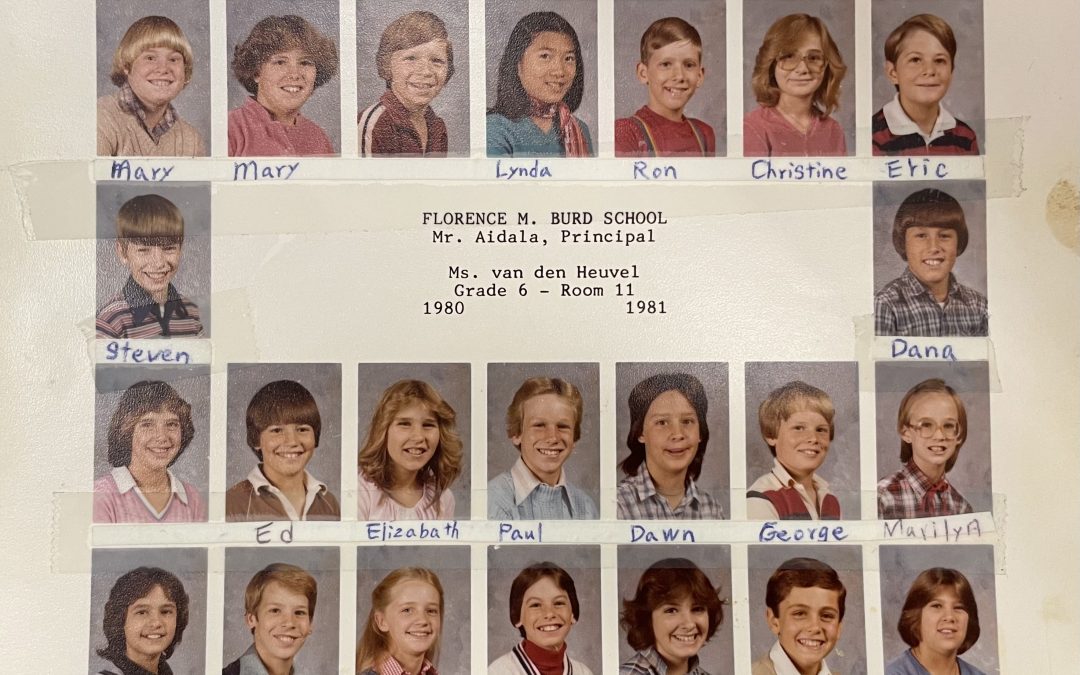For the first 14 years of my life, our family spent a month in Taiwan every summer. Whether it be the nightly chiming of the garbage truck (it usually played Fur Elise), praying at the temple five minutes down the street, or just sitting in the walls papered by my grandfather’s calligraphy work, I came to understand Taiwanese culture as a gift. Every trip, I relish the opportunity to be so connected to my familial roots.
On August 10, 1980, a plane landed in Anchorage, Alaska. On that plane was a 12-year-old girl, on the cusp of teendom and on the precipice of the unknown. That girl was my mother. She recalls seeing the statue of a polar bear in the Anchorage airport, waiting for documents to be signed and calls to be made, and staring at her feet which had made contact with the United States of America. Not long after touching down on the tarmac, the documents were signed, the calls were made, and she boarded another flight to John F. Kennedy Airport.
The oldest of four siblings, she traveled with one of her brothers (my eldest uncle) to live with her uncle and cousins in New Jersey. Her two other siblings stayed in Taiwan with her father (my grandfather) and her mother (my grandmother) lived in Chicago where she was working as a nurse. Her uncle owned a farm in upstate New Jersey.
I would go with him to Chinatown, so we would go to Canal Street, and we were one of the stands. We would be setting up the stand over there, and I would be weighing vegetables, and you know the customer would come by and we’d sell. We had a lot of corn too… I remember seven ears for one dollars… My favorite time is when we would go to Chinatown. The thing I loved most is that at the end of the day, after all the vegetables were sold—and I remember there was a decent amount of money, maybe $500 per day. I mean it was a giant truck, and we would sell everything. I would be so happy because my uncle would ask me, ‘What would you like for dinner?’ and I would want to have Three Treasure Rice. There’s roast pig, barbeque pork, and chicken. I just loved eating that dish so much, so my favorite thing in the world was knowing that if we went to Chinatown, I would get to eat that, because my uncle wasn’t very rich… so usually we ended up eating the leftover vegetables that weren’t sold.
During and after Vietnam War, the U.S. was looking for healthcare professionals to help out as most of the U.S. healthcare workers had all been working in Vietnam and the return of soldiers highlighted a shortage of nurses and doctors to aid and rehabilitate the wounded. My grandmother was a nurse and my grandfather was a surgeon in Taiwan. With growing political tension in Taiwan concerning my grandparents, my grandmother decided to join the nursing workforce in the U.S. and in 1975, moved to Chicago to work. My grandfather decided to stay with his established practice in Taiwan and take care of their four children. However, by 1980, the family decided it would be best to immigrate to the U.S. By that time, the U.S. had ended the search for healthcare workers and my grandfather had to stay in Taiwan to support the family financially as his medical education would not transfer to the states.

We came to the U.S. because of the martial law and the White Terror… so we came here, and the thing that made me the happiest was at night after eating my Three Treasure Rice in Chinatown, sometimes if my uncle was in a good mood, he would ask me, ‘Where do you want to go?’ And I would say, ‘I want to go to the World Trade Center.’ Chinatown is really close to the World Trade Center, so we would be able to go to the World Trade Center, and he would say, ‘Okay, so you want to go up there?’ and I would say, ‘Yeah, yeah, yeah, I just want to see the sky.’ It’s like so tall, you know, you’re like on top of the skyscraper. You feel powerful, you understand? So I just wanted to go up on the big highrise, the big skyscraper, so we would go to the top floor, and then he’s like, ‘What do you want to do?’ And I say, ‘Oh, I just want to look around.’ I would look over every single one… I would go one by one to the telescopes, and look through every single telescope to see—because you need to pay money, so I would see which one had leftover because some people don’t use up all of their time, the time hasn’t expired yet. So I would look at every single one, and I thought it was the coolest thing because no telescope would be as clear as the ones at the World Trade Center, like, I could actually see the moon’s surface. It’s that clear.
On February 28, 1947, the KMT violently suppressed an anti-government protest resulting in 18,000-28,000 deaths. After that, the president imposed martial law and declared a one-party system under the KMT. The time from 1947 to1987 is dubbed the White Terror, characterized by the political repression of Taiwanese citizens.
At that time, everything… honestly I wouldn’t know when I was young because I was a kid. I just know when I was really small and I used to go to school and I used to wonder why Grandpa would go to the bookstore and he would be carrying this paper bag and inside the paper bag were books or magazines. And then he would pass the paper bag under the counter to the worker to make sure noone saw. This was late a night when there were no customers, no people. There were no money transactions. If someone was getting paid, they were probably pre-paid before the interaction. It was prohibited literature. Every single time when grandpa started to critize the government and stuff like when we were eating lunch or dinner and stuff, grandma would just go ‘Shhhh.. Stop talking about it. No more.’ because people were always listening. No more talking. We can’t talk about it. And you know people like disappear and stuff, so then that’s what happened. When I started to understand the news, I started to get scared. I started to understand the news, and I would watch television. I remember a story about this person’s family… the parents weren’t around and the grandparents were the ones taking care of the children. The four children and their grandparents were killed in the middle of the night when the parents were out, so at night, especially when my parents aren’t home, I would get super nervous, and our house is pretty big. So I have to make sure all the windows on the floors were locked. I was so scared that people would climb. Taiwan’s houses are very close together, so you can jump from one house to another. So I was really scared. Scared that people would jump over here. Scared that people would come kill us. And so we came to America.
At 12 years old, my mother landed in Ms. van den Heuvel’s 6th-grade class at Florence M. Burd School in Andover, New Jersey. It was with Ms. van den Heuvel that my mother learned the “Pledge of Allegiance” and made her first chocolate chip cookies. Lunch was always reserved for extra English tutoring as my mother picked up the language, dissecting sentences apart with a little pocket dictionary and practicing the ABCs. Ms. van den Heuvel became a second mother as my grandmother worked in Chicago. Even after my mother moved to Chicago, they continued to write letters back and forth. My mother even visited Ms. van den Heuvel with my father after my parents got married in the late 1990s. She credits Ms. van den Heuvel with making the U.S. feel welcoming.

As the oldest sibling, she often had to watch over her younger siblings with her parents out of the house. While she had a positive experience, not everything was smooth sailing. Her brothers were often bullied and called racial slurs. She remembers a group of high schoolers that would loiter outside of her house just to heckle her as she walked home.
She[a girl in my mother’s class] would buy two dozen, or maybe one dozen of Dunkin’ Donuts, but I can’t eat it. I can’t eat it because she thought of me as coming from a poor family. I was a poor person. I wasn’t her friend. There’s definitely prejudice, except to me, my dad was very encouraging that, ‘You’re the oldest. You have to help out. You have to pick it up quickly and stuff like that, so you can help mom and you guys can be together.’
Thanks to the open arms of Ms. van den Heuvel, my mother developed the courage to stand up to people and ended up falling in love with America. Ms. van den Heuvel would take her shopping, invite her to bake cookies, and even introduce her to the rest of her family.
So she was like, ‘Oh yeah this is—’ Wayne, her husband’s name was Wayne Miller [laughs] But she always calls him “honey,” so initially I didn’t know his name was Wayne, and I said, ‘…so his name is Honey?’ She’s like, ‘Oh, no no no, Honey is not his name.’ … Honey is not a name!’ …
My mother ended up attending the University of Illinois Urbana-Champaign and continued on to the University of Pennsylvania Dental School where she met my father. My mother is the kindest, bravest, and most passionate person I have ever met. While she might have lived in fear for the first 12 years of her life, she found a voice in America. Supported by her uncle, Ms. van den Heuvel, and other compassionate souls, my mother makes sure my sister and I say “Thank you” every day for the opportunity that landed our family in America. At the same time, she makes sure we never forget where we came from. Where did we come from? Folks, it is that tiny island off the coast of China— the tiny island of Taiwan. We are from Taiwan but are completely and wholly American.


Recent Comments